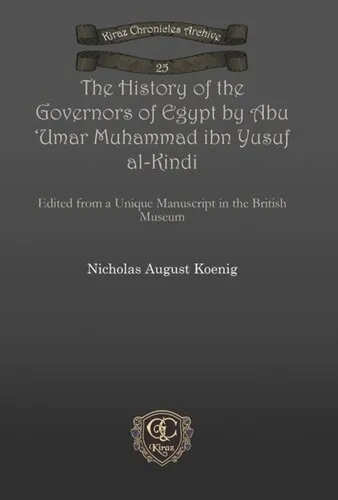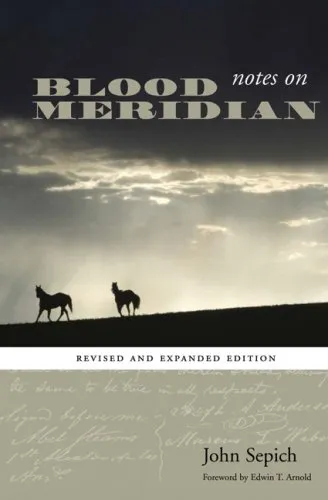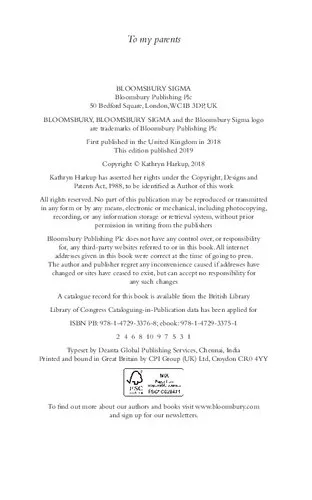The History of the Governors of Egypt by Abu 'Umar Muhammad ibn Yusuf al-Kindi: Edited from a Unique Manuscript in the British Museum
4.3
بر اساس نظر کاربران

شما میتونید سوالاتتون در باره کتاب رو از هوش مصنوعیش بعد از ورود بپرسید
هر دانلود یا پرسش از هوش مصنوعی 2 امتیاز لازم دارد، برای بدست آوردن امتیاز رایگان، به صفحه ی راهنمای امتیازات سر بزنید و یک سری کار ارزشمند انجام بدینکتاب های مرتبط:
مقدمهای بر کتاب
کتاب "The History of the Governors of Egypt" اثر ابوعمر محمد بن یوسف الکندی یکی از مهمترین منابع تاریخی درباره حاکمان مصر در دوران اولیه اسلامی است. این کتاب که از یک نسخه خطی منحصر به فرد در موزه بریتانیا ویرایش شده، اطلاعات دقیقی درباره حکومتها و سیاستهای منطقه مصر ارائه میکند.
خلاصه ای دقیق از کتاب
کتاب زندگینامهی مفصلی از حاکمان مصر از زمان ورود اسلام تا قرون بعدی ارائه میدهد. الکندی با دقت به روابط دیپلماتیک، ساختارهای حکومت و تعاملات اجتماعی در مصر پرداخته است. او روند تاریخی را به شکلی روشن تحلیل کرده و تصویری جامع از وضعیت سیاسی و فرهنگی مصر را ترسیم میکند.
نکات کلیدی
- توضیح در مورد نقش حاکمان در توسعه اقتصادی و فرهنگی مصر.
- بررسی تاثیرات خارجی و داخلی بر سیاستهای مصر.
- تحلیل موقعیت جغرافیایی مصر و اهمیت استراتژیک آن در جهان اسلامی.
- نگاه دقیق به تحولات اجتماعی و فرهنگی مصر تحت حاکمانی مختلف.
جملات معروف از کتاب
تاریخ هرگز منحصر به فرد نیست و همیشه نیازمند بازنویسی و بازشناسی است، زیرا هر دورانی نوشتن خاص خود را طلب میکند.
حکومت تنها ابزاری است برای خدمت به مردم، نه ابزاری برای قدرتطلبی و خودخواهی.
چرا این کتاب مهم است؟
این کتاب منبعی بینظیر برای پژوهشگران و علاقهمندان به تاریخ اسلام و مصر است. الکندی با جزئیاتی که ارائه داده، نه تنها درباره حاکمان بلکه درباره زندگی روزمره مردم عادی مصر نیز اطلاعات گرانبها به ما میدهد. این اثر به تحولات مهم تاریخی مانند فتح مصر توسط مسلمانان و تأثیرات آن بر جامعه مصر میپردازد، که به فهم بهتر تاریخ خاورمیانه کمک میکند.
Introduction to "The History of the Governors of Egypt"
Detailed Summary of the Book
The book is a meticulous chronicle of the governors who ruled Egypt from the advent of Islamic governance until the era contemporary to al-Kindi himself. Structured as both a narrative and a repository of records, the manuscript offers detailed accounts of the socio-political landscape under various governors. It provides a chronological listing, accompanied by analysis and commentary on the governors' policies, military campaigns, and administrative reforms.
Al-Kindi, through his analytical prowess, captures the essence of governance challenges in medieval Egypt and the interplay of local and imperial politics. What makes this work stand out is its strategic perspective on the shifts in power dynamics and its examination of how these governors balanced local tribal alliances with the overarching interests of the caliphates they represented.
Key Takeaways
- Comprehensive record of Egypt’s administrative history under Islamic governance.
- Insightful analysis of power struggles between provincial governors and centralized caliphate authority.
- Understanding of socio-economic policies and their impacts on the region’s development.
- Exploration of the role of Egypt as a pivotal province in Islamic history.
Famous Quotes from the Book
Al-Kindi's work, while primarily historical, is rich with observations that resonate with universal themes of leadership and governance. Here are some poignant excerpts:
"The strength of a governor does not solely rest in his ability to wield power, but rather in his wisdom to wield it justly."
"In Egypt, the rivers of administration must flow with both knowledge and dedication, lest they become dry with tyranny."
Why This Book Matters
The significance of al-Kindi's work lies in its combination of scholarly depth and practical detail. It serves as both a historical document and a guide to the intricacies of governance during one of history's most formative periods. For researchers and students of Islamic history, the book provides rich empirical data and invaluable insights into the principles and practices that shaped one of the greatest civilizations.
In the broader context, understanding the governance of Egypt through al-Kindi's eyes allows contemporary readers to appreciate the enduring legacies of administrative leaders and their impact on modern governance structures. The meticulous preservation and editing of this unique manuscript from the British Museum highlights the ongoing importance of preserving historical texts that contribute to our understanding of global history.
دانلود رایگان مستقیم
شما میتونید سوالاتتون در باره کتاب رو از هوش مصنوعیش بعد از ورود بپرسید
دسترسی به کتابها از طریق پلتفرمهای قانونی و کتابخانههای عمومی نه تنها از حقوق نویسندگان و ناشران حمایت میکند، بلکه به پایداری فرهنگ کتابخوانی نیز کمک میرساند. پیش از دانلود، لحظهای به بررسی این گزینهها فکر کنید.
این کتاب رو در پلتفرم های دیگه ببینید
WorldCat به شما کمک میکنه تا کتاب ها رو در کتابخانه های سراسر دنیا پیدا کنید
امتیازها، نظرات تخصصی و صحبت ها درباره کتاب را در Goodreads ببینید
کتابهای کمیاب یا دست دوم را در AbeBooks پیدا کنید و بخرید
1625
بازدید4.3
امتیاز0
نظر98%
رضایتنظرات:
4.3
بر اساس 0 نظر کاربران
Questions & Answers
Ask questions about this book or help others by answering
No questions yet. Be the first to ask!















